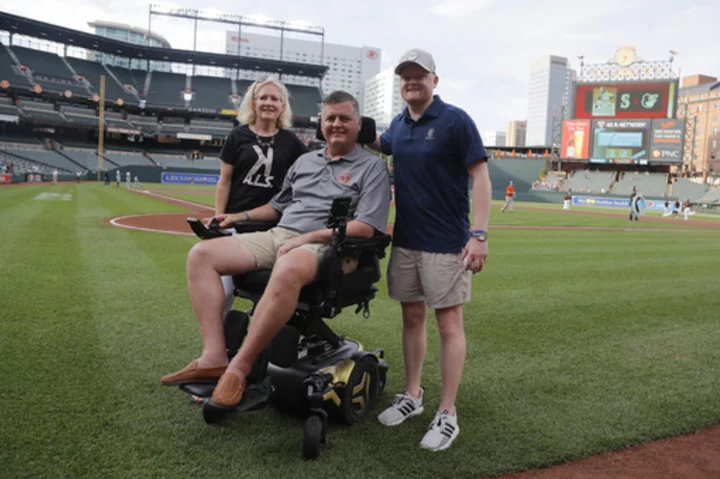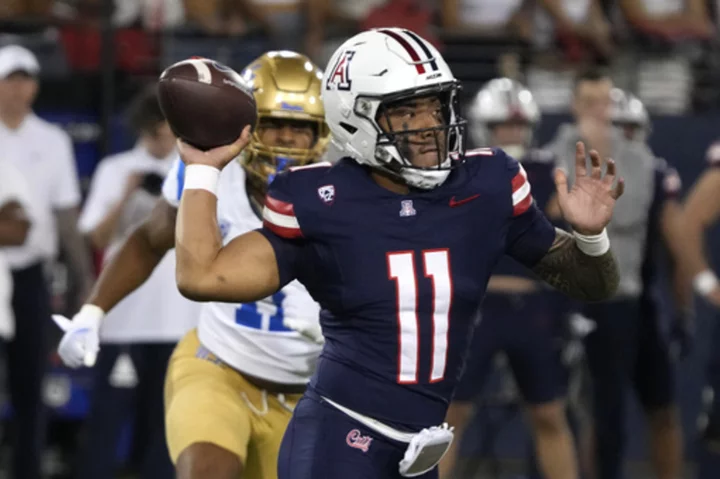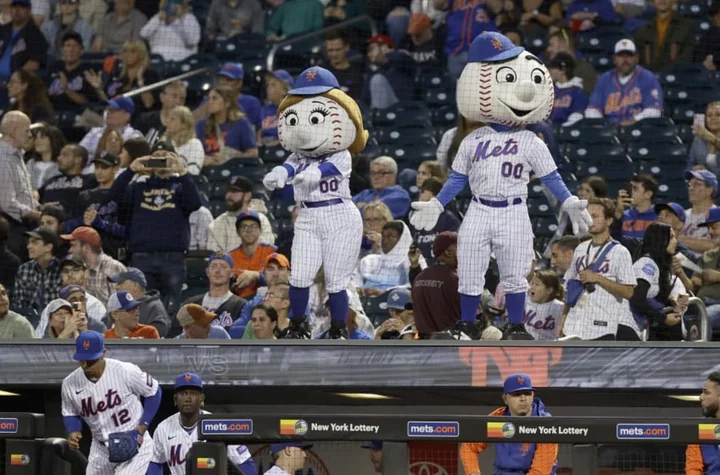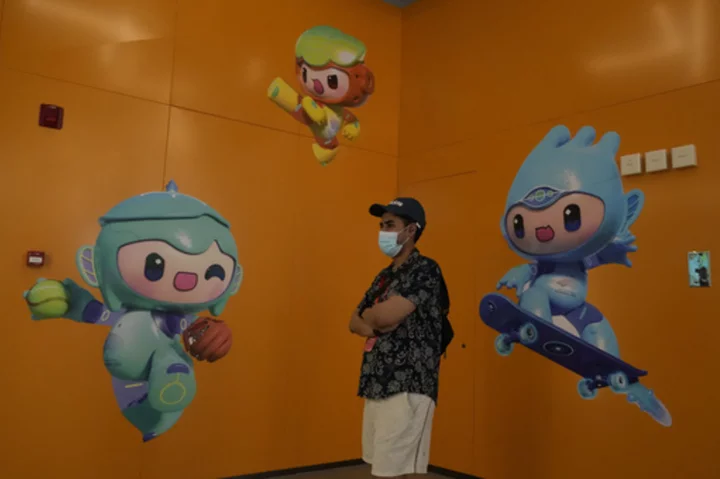ATLANTA (AP) — Sure, there was that one pitch on baseball's biggest stage, the one that clipped a little too much of the plate, the one that Jim Poole would've loved to have back.
Of course, sports rarely offer up the chance for a do-over, so we're left to ponder that nagging question.
Should someone be defined by their worst moment?
Not at all, which is why one of Poole's former teammates and best friends felt compelled to reach out after the longtime big league reliever died from ALS a couple of weeks ago.
Paul Assenmacher, who had a long career of his own in the majors, read the obituary I penned for The Associated Press. The lead paragraph noted that Poole was the guy who surrendered David Justice's homer in Game 6 of the 1995 World Series, which provided the only run in Atlanta's championship-clinching victory over Cleveland.
Assenmacher just wanted everyone to know that Poole was as fine a human being as he's ever encountered. He even threw out the word “perfect," if there is such a thing. He certainly doesn't think it's fair to focus on that one pitch in a life so well lived before it was cut so tragically short by an insidious disease at the age of 57.
It's an axiom that gets overlooked far too often when remembering anyone who makes a high-profile misstep, whether it was Fred Merkle or Bill Buckner or, yes, Jim Poole.
“Jim's legacy should not be about one pitch, one home run,” Assenmacher said. “He was much more than that.”
Poole had a degree in electrical engineering from Georgia Tech, and he gave back to his alma mater in countless ways — calling games on the radio, raising money, counseling athletes — after his playing days were over. He worked for a time at a suburban Atlanta high school, teaching math and coaching baseball. He could often be found at youth fields around metro Atlanta, eagerly passing along the lessons learned during 11 seasons in The Show. He got certified as a financial advisor, turning to a gig that advised minor leaguers on managing their money.
“Whoever you were, if you had a problem and needed something, he would try to help you,” Assenmacher recalled. “Here was a guy who was so intelligent. I don't know what his IQ was. I'm sure it was off the charts. But he never made you feel inferior or stupid.”
Assenmacher related a couple of memories from their playing careers, which overlapped during Poole's two stints with the team formerly known as the Cleveland Indians.
“During rain delays, we'd be trying to kill time in the locker room,” Assenmacher said. “You'd have guys playing cards, but I look over at Jim's locker and he's pulled this thing out and plugged it in the wall. I lifted this thing up, punched at it, wondering ‘What the hell is that?' I found out years later it was a laptop."
In Assenmacher's metaphorical view, "We were playing checkers, but Jim was playing chess.”
Poole was never a star, but he was a effective enough as the always-valued lefty out of the bullpen that he hung around the majors far longer than might've been expected. It was a tough life, though, bouncing from team to team, rarely staying in one place for very long.
Over his 11 seasons, Poole was called up by the Dodgers, traded to the Rangers, claimed off waivers by the Orioles, signed by the Indians, traded to the Giants, released by the Giants, signed by the Phillies, released by the Phillies, signed again by the Indians, signed by the Tigers, released by the Tigers, signed by the Expos (remember them?) and released by the Expos.
It added up to 431 appearances — all of them as a reliever, usually facing only one or two hitters per outing — with a record of 22-12, four saves and a 4.31 ERA.
“Gee, his life was like a day trader,” Assenmacher quipped. “He was traded around so much.” Yet, “he was very persevering," his friend added. "He was not going to be a quitter.”
Most important, Poole was a family man. He died in the arms of his wife Kim, who he met during freshman orientation week at Georgia Tech. He left behind three children and two grandchildren.
Jim and Kim were life partners, for sure, especially during all those years going from city to city, team to team. If that meant packing three young children in the car and making a long drive to wherever he was pitching, so be it, even if there was one especially frustrating trip where the family pulled into town to news that Poole had been released.
“His life was 10 times more interesting that mine will ever be,” Assenmacher marveled.
Two years ago, Poole was stricken with ALS, the progressive neurological disorder that steals the body while leaving the mind to fully comprehend its awful consequences. Assenmacher never heard a complaint from his friend, who delivered the news while the two were on a charity golf outing in Cleveland, of all places.
“He pulled me aside and said, ‘I want you to know before the news gets out in public,'" Assenmacher said. “He was so calm and strong. He told me, ‘Hey, I’ve had a blessed life. I've got no complaints. I'm truly blessed.' He was so strong, and I'm crying like a baby in front of him. That's just the way he was.”
A blessed life, indeed. But, if one wants to reduce it to a single pitch, here's another to consider.
In his big league debut with the Dodgers, on June 15, 1990, Poole got the call in the top of the 11th inning of a tie game to face one of the game's most feared hitters, San Diego's Tony Gwynn.
The future Hall of Famer hardly ever whiffed, but he did on this day. Didn't even lift the bat off his shoulder as he took a called third strike. Over Gwynn's nearly two decades in the big leagues, that happened just 434 times in 10,232 trips to the plate.
They played a clip of the late Vin Scully's velvety call of that pitch at the celebration of Poole's life last week, a service in the north Atlanta suburbs that was attended by more than 1,000 people whose own lives were touched by him in ways both big and small.
Sure, it was only one pitch.
But, in retrospect, it seems a far more fitting symbol of a life so well lived.
___
Paul Newberry is the national sports columnist for The Associated Press. Write to him at pnewberry@ap.org
___
AP MLB: https://apnews.com/hub/mlb









